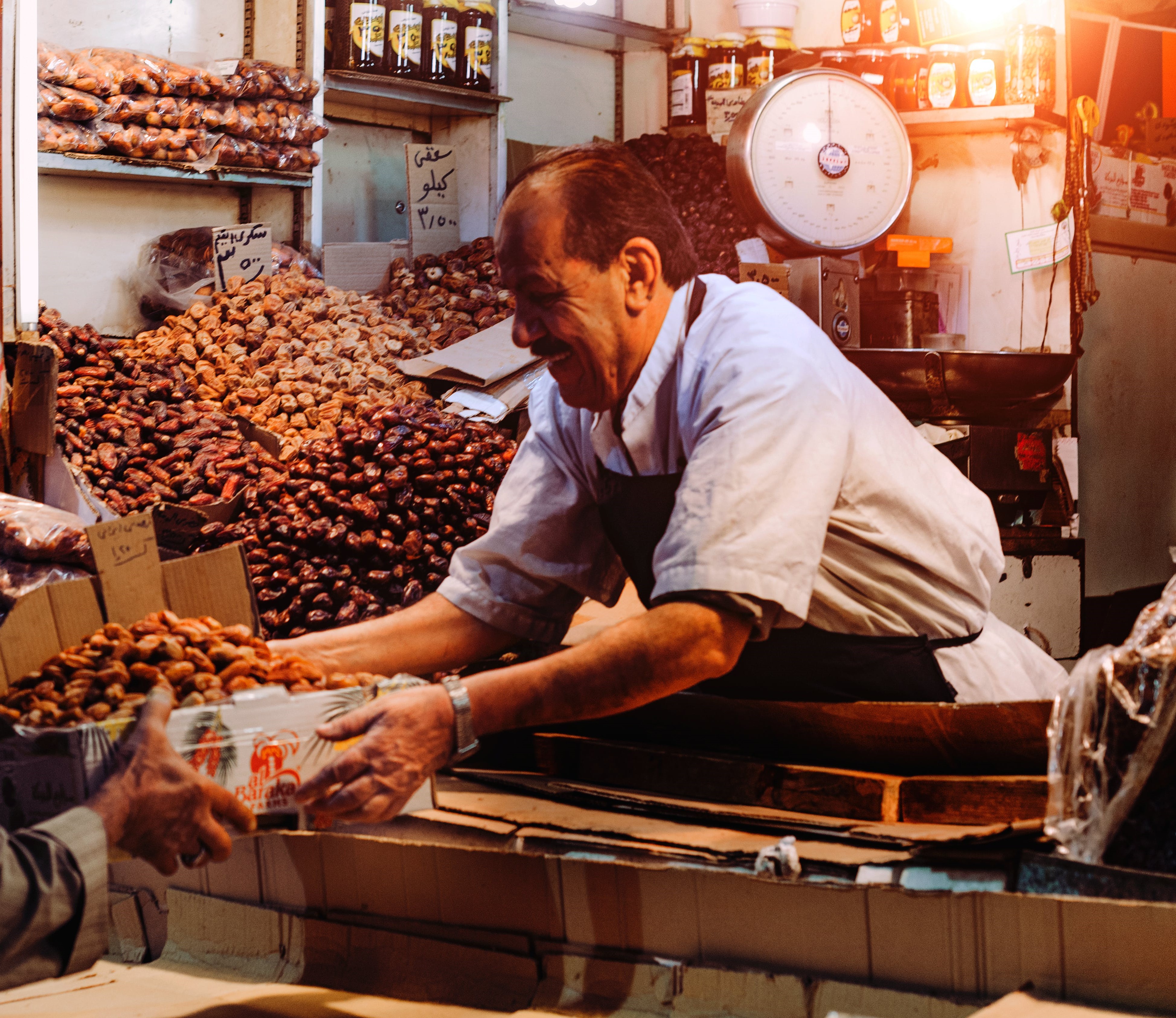+212 664 245 833
Newsletter
STAY TUNED BY SUBSCRIBING

Morocco is known for producing a high quality dates. This dried fruit plays a crucial role in society both culturally and
agriculturally. Moroccan dates are a major source of income given there are so
many varieties. This also holds true for the region of North Africa and the
Middle East. Moroccan dates are also used regularly in cuisine during religious
celebrations and are known for their high nutrient content.
Types of Dates
There are more than 45 varieties of dates that grow in the south of Morocco. This is the only region of Morocco where they can thrive, which is a result of the climate’s hot, arid weather. The dates that are famous and eaten regularly in Morocco are Medjool, Deglet Noor, and Halawi.
Medjool Date
Medjool date Morocco is one of the most popular, known for being large and plump yet soft in texture with rich flavor. It is offered on special occasions such as welcoming royalties, presidents, and wedding guests. This date has a rich, caramelized taste with a soft chewy texture and a small seed inside.
Growing the Medjool date is a very labor-intensive process since it takes approximately seven years for a tree to start producing. Eleven Medjool palms were sent to Nevada in 1927 from Morocco to save the local date palms being devastated by disease. This is the reason why Medjool dates can be found in California and Arizona today.
Deglet Noor Date
The Deglet Noor date is medium in size with a narrow elongated oval shape. The texture is semi-dry and often described as having a slight snappy crunch. It is used in Moroccan pastries and tagines.
Halawi Date
The Halwai date has a caramel flavor, is medium in size, and soft in texture. This date contains a high sugar content in comparison to Medjool and it is typically served as a dessert. Halawi in Arabic means "sweet".
How Dates are a Part of Moroccan Culture
Breaking the Fast During Ramadan
Muslims break the fast of Ramadan with dates as instructed by the Prophet Mohammed. Dates are perfect for breaking a fast since they are easy to digest and quickly provide energy to the body.
Weddings
One of the wedding traditions in Morocco is the bride and groom exchange, which involves each of them placing a date or stuffed date walnut or almond paste in each other’s mouth. This is an act that depicts the bride and groom welcoming each other to their new life. The bride traditionally also takes a small bite from a stuffed date and shares it with the other women attending her wedding. This is a sign of good luck and a kind of blessing that other single women soon marry after the bride. This is similar to the American tradition whereby the bride throws flowers to her bridesmaids.
Health Benefits
Dates are high in several nutrients and antioxidants, all of which may provide health benefits ranging from improving digestion to a reduced risk of disease. Thanks to these benefits dates are widely used in Moroccan cuisine. Dates are an essential part of the culture and are sold in all of the souks and shops.